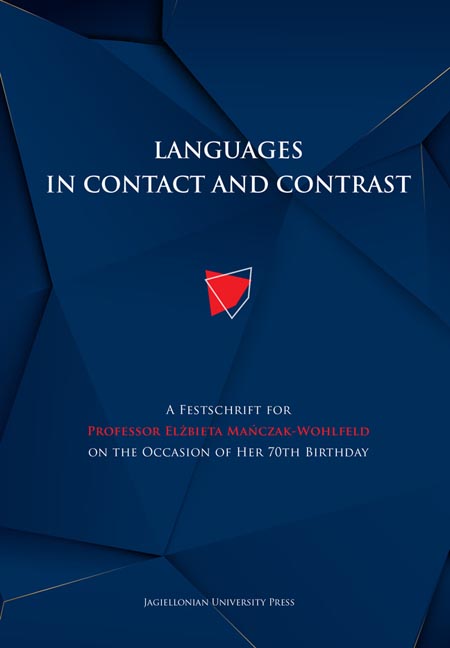 Languages in Contact and Contrast
Languages in Contact and Contrast Published online by Cambridge University Press: 14 October 2023
Introduction
In The Description of the World, Marco Polo gives an account of an interesting custom. On the occasion of the New Year, the Mongol people bring presents to their sovereign, and each present is comprised of elements being a multiple of number nine:
It is true that the they have their New Year’s in the month of February. […] On this day, everyone, [the heads of] all the provinces, regions, and kingdoms that hold land and authority from him, bring very great presents […]. Then it is a custom among them, that in making of presents to the great Khan all the provinces which can do so observe this way, that of each present nine times they present nine head; that is, if it is a province which sends horses, it presents nine times nine head of horses, that is eighty-one; if it presents gold, nine times it sends nine pieces of gold; if cloths, nine times nine pieces of cloths; and so with all the other things […]. (Kinoshita 2016: 79–80)
The truthfulness of many fragments of Polo’s work was challenged. Yet, his presentation of the custom known to the Mongol people in the 13th century must have been based on his own observations or some other reliable source.
Number nine as a perfect whole
Since the beginning of the 20th century, papers dealing with linguistics have discussed counting systems used by the Altai and Uralic peoples, and the special role of some numbers, including number nine.
The number has been and, to a vestigial extent, still is treated as a peculiar unity – an entirety comprised of nine parts. Before the decimal system was introduced, number nine was used to calculate taxes and fines; the noun nine denoted a ‘nine-piece set’, and this was also the name for a present which was commonly comprised of nine elements. There is no clear answer to the question about the origins of the nonary (novemal) counting system found in Asia.
To save this book to your Kindle, first ensure [email protected] is added to your Approved Personal Document E-mail List under your Personal Document Settings on the Manage Your Content and Devices page of your Amazon account. Then enter the ‘name’ part of your Kindle email address below. Find out more about saving to your Kindle.
Note you can select to save to either the @free.kindle.com or @kindle.com variations. ‘@free.kindle.com’ emails are free but can only be saved to your device when it is connected to wi-fi. ‘@kindle.com’ emails can be delivered even when you are not connected to wi-fi, but note that service fees apply.
Find out more about the Kindle Personal Document Service.
To save content items to your account, please confirm that you agree to abide by our usage policies. If this is the first time you use this feature, you will be asked to authorise Cambridge Core to connect with your account. Find out more about saving content to Dropbox.
To save content items to your account, please confirm that you agree to abide by our usage policies. If this is the first time you use this feature, you will be asked to authorise Cambridge Core to connect with your account. Find out more about saving content to Google Drive.